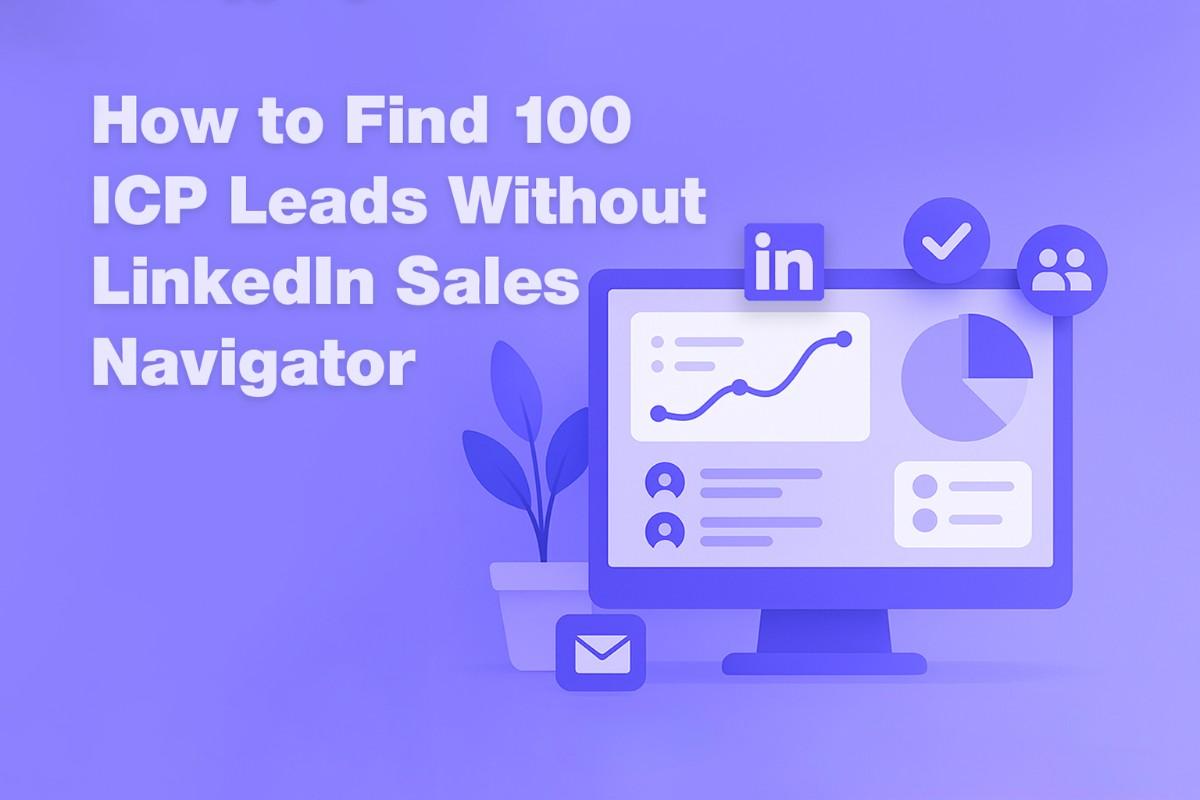Table of content
What is B2B: Trends and Best Practices?
With the dynamic business landscape, the word b2b business to business has undergone huge changes. At a time when companies want to get accustomed to shifting digital screens, understanding what B2B marketing is about, what constitutes its key strategies, and what will be b2b trends 2025 become important factors. Whether you're new to the B2B model or looking to improve your current operations, this article will run through everything from B2B business strategies to B2B sales tactics and B2B lead generation strategies, highlighting the importance of B2B marketing best practices and B2B customer experience. We'll also dive into emerging trends like B2B e-commerce trends, B2B marketing automation, and the future of B2B marketing.
B2B Definition: What Is B2B Marketing?
B2B, or Business-to-Business, describes a type of transaction or relationship between two businesses. In a B2B model, one business sells products or services to another business rather than selling to individual consumers-the latter of which describes the case of B2C or Business-to-Consumer transactions. Examples of B2B operations include a wholesaler selling to a retailer and a software provider offering tools to companies to streamline their operations.
B2B marketing is an approach to marketing strategies that target other businesses and influence purchasing decisions. B2B marketing tends to be more focused on relationship building, providing value, and solving business problems, as opposed to B2C marketing, which is very emotional and has a relatively short sales cycle.
Benefits of B2B
The adoption of a B2B business model provides several benefits to businesses that want to scale.
1. Value of Transactions: B2B typically involves higher value transactions than those in B2C. This is because businesses often buy in huge quantities or require more developed services, thus leading to higher sales volumes.
2. Longer Client Relationships: In B2B, the sales cycle may last longer, but the advantage that usually comes with it is a longer-term stable relationship. The business values consistency and reliability. This leads to recurring revenues and long-term client retention.
3. Specialization and Expertise: B2B businesses often serve specialized needs. Focusing on specific industries or markets, B2B businesses can offer niche products and services that appeal to niche audiences, which can lead to a higher level of expertise and customer loyalty.
4. Recurring Revenue Opportunities: Many B2B businesses, especially SaaS (Software-as-a-Service) providers, can benefit from subscription-based revenue models. This creates a predictable income stream, which is often more sustainable than one-off transactions.
Challenges of B2B
Despite the advantages, there are challenges associated with B2B operations that businesses need to overcome, including:
1. Long and involved sales process: B2B sales tactics frequently involve more than one buyer in the decision-making process, which makes the sales process long and complicated. Therefore, companies must have insight into how to manage this process efficiently.
2. High customer expectations: Companies expect customized solutions and personalized services. Providing an excellent B2B customer experience is important for maintaining high levels of satisfaction and trust.
3. Competitive Landscape: B2B markets can be extremely competitive, particularly in areas like technology and manufacturing. Firms have to constantly innovate and better their offerings in order to maintain their market positions.
4. Long Sales Cycles: B2B sales cycles tend to be longer due to the necessity of several rounds of negotiation and approvals. A holistic approach has to be in place to develop leads over time-from first contact to the closing of a deal.
B2B Marketing Strategies
B2B marketing strategies require implementation by firms in the space to deliver specific needs and challenges to the companies. Some of the key strategies for this implementation include:
1. B2B Content Marketing: B2B content marketing focuses on creating informative and valuable content that attracts and nurtures business customers. This can include blogs, case studies, white-papers, and webinars that highlight a company's expertise and provide useful solutions to business problems. High-quality content builds trust and helps businesses rank higher on search engines, which contributes to increased visibility and lead generation.
2. B2B Lead Generation Strategies: For obtaining new business customers, the need for effective B2B lead generation strategies is critical. A common strategy is offering value in the form of resources, like eBooks or free trials, in exchange for contact information, allowing a business to build a list of qualified leads. Lead magnets and paid ads are popular drivers of targeted traffic to landing pages, which in turn drive conversions and sales.
3. B2B Marketing Automation: B2B marketing automation streamlines repetitive tasks such as email campaigns, social media posts, and lead nurturing. By automating these processes, businesses can focus more on strategy and creative tasks while improving efficiency. Automation also enables better segmentation and personalization of content, ensuring that businesses can engage their target audience at the right time with the right message.
4. B2B Social Media Strategies: B2B social media strategies are important in order to reach and engage other businesses. Using LinkedIn, Twitter, and Facebook enables B2B companies to connect with key decision-makers, share industry insights, and build thought leadership. Social media also allows for the possibility of direct interaction with clients and their concerns as well as the opportunity to narrate success stories of customers.
5. B2B E-commerce Trends: The B2B e-commerce trends have changed the way business operations are conducted. B2B e-commerce platforms help companies sell products directly to other businesses in an efficient online marketplace. Online catalogs, bulk pricing, and order tracking facilitate easier purchases, and analytics provide data that enable companies to make better decisions regarding their e-commerce.
6. B2B Marketing Analytics: The B2B marketing analytics function is really important in the sense of tracking the performance of any marketing efforts. It shows how and where customers are behaving, websites are being accessed, and campaigns are being performed through analyzing customer behavior, website traffic, and campaign performance. Analytics further help businesses improve ROI by identifying their high-performing channels and customer segments.
7. B2B SaaS Trends: The B2B SaaS trends market has exploded in recent years with businesses relying more on software solutions to improve their operations. CRM, project management, and team collaboration tools have become essential for B2B success. They increase the efficiency of operations and enable companies to scale up their operations without increasing overhead costs.
8. B2B Digital Transformation: B2B digital transformation is a process in which businesses include digital technologies into all their operational areas to bring fundamental changes in their way of operation and provide value to the customers. Digital transformation makes customer experiences easier, makes processes more agile, and provides an avenue for more innovation and growth. Businesses leading this change include those applying digital tools like AI, machine learning, and cloud computing.
B2B Case Study:
One of the most interesting B2B case studies comes from HubSpot, which is one of the leading providers of inbound marketing and sales software. HubSpot used its own platform to scale its operations in content creation, lead nurturing, and inbound marketing. It successfully expanded its client base and improved customer retention through B2B lead generation strategies, automation of marketing efforts, and providing personalized customer experiences. The company's approach to B2B content marketing and B2B marketing automation serves as an excellent example for businesses looking to streamline their B2B operations.
B2B Trends 2024: What's Next?
As businesses continue to adapt to the digital age, b2b trends 2025 are shaping the future of business marketing. Key trends to look out for include:
1. AI-Driven Marketing: Artificial intelligence will continue to improve B2B marketing automation and B2B marketing analytics, which would provide smarter tools for personalized marketing and data-driven decision-making.
2. Voice Search Optimization: With the growth of voice assistants like Amazon Alexa and Google Assistant, voice search optimization of B2B websites and content will gain importance.
3. Personalization at Scale: Customers are demanding more personalized experiences, and businesses will need to deliver tailored content, offers, and recommendations through data and segmentation.
4. Increased Use of Video Content: Video is becoming a dominant form of content for B2B marketing. Companies will need to create engaging video content that resonates with business customers.
5. Chatbots: B2B customer experience will see more applications of chatbots in strategies that aim to provide immediate support and automate customer services.
Conclusion: The Future of B2B Marketing
The future of B2B marketing depends on the continuous advancement that will be witnessed in this technology and customer expectations. An adaptation of B2B digital transformation, creating a better B2B customer experience, utilizing data-driven strategies such as B2B marketing analytics and B2B sales tactics will serve to stay ahead of one's competitors. Long-term adaptation to the latest B2B e-commerce trends and optimization for B2B content marketing is the way forward for gaining long-term success in a fast-changing B2B landscape.
Get your next meeting in a
matter of minutes.
Free Trial
Latest
The Ultimate LinkedIn Outreach Playbook 2025
A practical, modern guide to mastering LinkedIn outreach in 2025 — learn how to boost reply rates, p
12/1/2025How to Find 100 ICP Leads Without LinkedIn Sales Navigator
Generating 100 targeted ICP leads doesn’t require LinkedIn Sales Navigator. Learn how to leverage fr
11/28/2025


